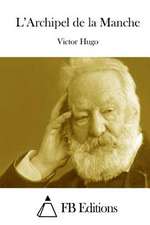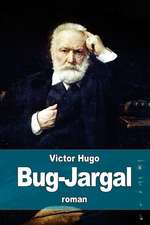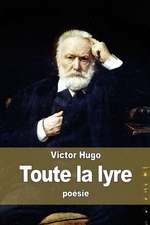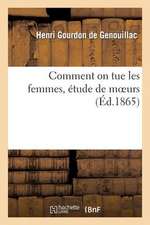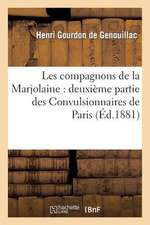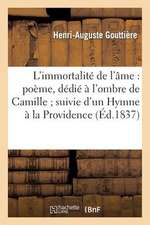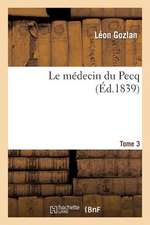The Hunchback of Notre Dame
Autor Victor Hugo Traducere de Isabel Florence Hapgooden Limba Engleză Paperback
| Toate formatele și edițiile | Preț | Express |
|---|---|---|
| Paperback (16) | 32.64 lei 22-36 zile | +7.86 lei 6-12 zile |
| Bantam Classics – 31 ian 1981 | 32.64 lei 22-36 zile | +7.86 lei 6-12 zile |
| Stone Arch Books – 30 iun 2014 | 49.88 lei 22-36 zile | |
| Capstone Global Library Ltd – 2 iul 2009 | 65.59 lei 22-36 zile | +7.48 lei 6-12 zile |
| CreateSpace Independent Publishing Platform – | 109.57 lei 22-36 zile | |
| – | 132.75 lei 22-36 zile | |
| CREATESPACE – | 147.98 lei 22-36 zile | |
| CREATESPACE – | 166.68 lei 22-36 zile | |
| CREATESPACE – | 176.32 lei 22-36 zile | |
| CREATESPACE – | 192.41 lei 22-36 zile | |
| CREATESPACE – | 72.83 lei 43-57 zile | |
| CREATESPACE – | 105.36 lei 43-57 zile | |
| – | 147.99 lei 43-57 zile | |
| SC Active Business Development SRL – 10 mar 2017 | 166.57 lei 38-44 zile | |
| Simon & Brown – 29 sep 2018 | 252.01 lei 38-44 zile | |
| Simon & Brown – 30 oct 2018 | 252.01 lei 38-44 zile | |
| Simon & Brown – 14 noi 2018 | 267.37 lei 38-44 zile | |
| Hardback (3) | 300.47 lei 38-44 zile | |
| Simon & Brown – 29 oct 2018 | 300.47 lei 38-44 zile | |
| Simon & Brown – 29 sep 2018 | 304.34 lei 38-44 zile | |
| Simon & Brown – 14 noi 2018 | 325.00 lei 38-44 zile |
Preț: 147.98 lei
Nou
Puncte Express: 222
Preț estimativ în valută:
28.32€ • 29.64$ • 23.57£
28.32€ • 29.64$ • 23.57£
Carte disponibilă
Livrare economică 10-24 martie
Preluare comenzi: 021 569.72.76
Specificații
ISBN-13: 9781484865569
ISBN-10: 1484865561
Pagini: 450
Dimensiuni: 152 x 229 x 25 mm
Greutate: 0.65 kg
Editura: CREATESPACE
ISBN-10: 1484865561
Pagini: 450
Dimensiuni: 152 x 229 x 25 mm
Greutate: 0.65 kg
Editura: CREATESPACE
Notă biografică
Victor-Marie Hugo was born in 1802 at Besanon, where his father, an officer under Napoleon, was stationed. In his first decade the family moved from post to post: Corsica, Naples, Madrid. After his parents separated in 1812, Hugo lived in Paris with his mother and brothers. At twenty he married Adele Foucher and published his first poetry collection. Hugo was elected to the Academie Francaise in 1841. The accidental death two years later of his eldest daughter and her husband devastated him and marked the end of his first literary period. By then politics had become central to his life. Though he was a Royalist in his youth, his views became increasingly liberal after the July revolution of 1830: Freedom in art, freedom in society, there is the double goal. He initially supported the political ascent of Louis Napoleon, but turned savagely against him after being denied a role in government following the coup de'tat of 1851. Hugo went into exile in Brussels and Jersey, launching fierce literary attacks on the Second Empire. After the fall of the Second Empire in 1870, Hugo returned to France and was reelected to the National Assembly, and then to the Senate. He had become a legendary figure and national icon.
Extras
Chapter One
The Great Hall of the Palace of Justice
ON JANUARY 6, 1482, the people of Paris were awakened by the tumultuous clanging of all the bells in the city. Yet history has kept no memory of this date, for there was nothing notable about the event which set in motion the bells and the citizens of Paris that morning. It was not an attack by the Picards or the Burgundians, a procession carrying the relics of some saint, an entry of "Our Most Dreaded Lord, Monsieur the King," nor even a good hanging of thieves.
Nor was it the arrival of some foreign ambassador and his train, all decked out in lace and feathers, a common sight in the fifteenth century. It had been scarcely two days since the latest cavalcade of this kind had paraded through the streets: the delegation of Flemish ambassadors sent to conclude the marriage between the Dauphin and Marguerite of Flanders. To his great annoyance, Cardinal de Bourbon, in order to please the king, had been obliged to give a gracious reception to that uncouth band of Flemish burgomasters and entertain them in his mansion.
The cause of all the commotion on the sixth of January was the double holiday of the Epiphany and the Festival of Fools, united since time immemorial. This year the celebration was to include a bonfire at the Place de Greve, a maypole dance at the Chapelle de Braque and the performance of a play in the Palace of Justice, all of which had been announced by public proclamation the day before. All shops were to remain closed for the holiday.
Early in the morning the crowd began streaming toward the three designated places, each person having decided on either the bonfire, the maypole or the play. It is a tribute to the ancient common sense of the people of Paris that the majority of the crowd went to either the bonfire, which was quite seasonable, or the play, which was to be performed in the shelter of the great hall of the palace, leaving the poor maypole to shiver beneath the January sky in the cemetery of the Chapelle de Braque.
The avenues leading to the Palace of Justice were particularly crowded because it was known that the Flemish ambassadors, who had arrived two days before, were planning to attend the play and the election of the Pope of Fools, which was also to be held in the palace.
It was not easy to get into the great hall that day, even though it was reputed at the time to be the largest single room in the world. To the spectators looking out of their windows, the square in front of the palace, packed solid with people, presented the appearance of a sea, with five or six streets flowing into it, constantly disgorging a stream of heads. The waves of this sea broke against the corners of the houses jutting out like promontories into the irregular basin of the square. Shouts, laughter and the shuffling of thousands of feet blended to produce a mighty uproar.
At the doors and windows and on the rooftops swarmed a myriad of sober, honest faces, looking at the palace and the crowd with placid contentment. Many Parisians still find deep satisfaction in watching people who are watching something; even a wall behind which something is happening is an object of great curiosity to them.
Let us now imagine that immense oblong hall inside the palace, illuminated by the pale light of a January day and invaded by a motley and noisy crowd pouring in along the walls and swirling around the seven great pillars. In the middle of the hall, high up and against one wall, an enclosed gallery had been erected for the Flemish ambassadors and the other important personages who had been invited to see the play. A private entrance opened into it through one of the windows.
At one end of the hall was the famous marble table, so long, wide and thick that "such a slab of marble has never been seen before on earth," as an old document puts it. The play was to be performed on this table, according to custom. It had been set up for that purpose early in the morning. A high wooden platform had been placed on it, the top of which was to serve as the stage. Tapestries hung around the sides formed a sort of dressing room for the actors underneath. A ladder, undisguisedly propped up against the outside of the platform, connected the dressing room and the stage and served for entrances and exits alike. Every actor, no matter how unexpected his appearance in the play, and every stage effect, had to come laboriously up that ladder in full view of the audience.
Four sergeants of the bailiff of the palace, whose duty was to keep order among the people at festivals as well as executions, stood at each corner of the huge marble table.
The play was not scheduled to begin until the great clock of the palace struck noon--quite late for a theatrical performance, but it had been necessary to arrange the hour to suit the convenience of the ambassadors.
Many of the people had been shivering before the steps of the palace since dawn and some declared they had spent the whole night huddled in the great doorway in order to make sure of being among the first to enter. The crowd was growing denser at every moment and, like a river overflowing its banks, it soon began to rise up the walls and spill over onto the cornices, architraves, window ledges and all other projecting features of the architecture. Discomfort, impatience, boredom, the freedom of a day of license, the quarrels constantly breaking out over a sharp elbow or a hobnailed shoe, the fatigue of a long wait--all this gave a tone of bitterness to the clamor of the people as they stood squeezed together, jostled, trampled on and almost smothered. The air was full of complaints and insults against the Flemings, Cardinal de Bourbon, the bailiff of the palace, the sergeants, the cold, the heat, the bad weather, the Bishop of Paris, the Pope of Fools, the pillars, the statues, this closed door, that open window; all to the great amusement of a band of students and lackeys who, scattered throughout the crowd, mixed in their jibes and sarcasm with all that dissatisfaction and thus goaded the general bad humor into becoming even worse.
Some of these merry demons had knocked the glass out of one of the windows and were boldly sitting in it. From there they were able to direct their bantering remarks both inside and outside, toward the crowd in the hall and the crowd in the square. From their mimicking gestures, their loud laughter and the ribald jokes they exchanged with their comrades from one end of the hall to the other, it was easy to see that they did not share the boredom and fatigue of the rest of the spectators and that they were able to extract enough entertainment from the scene spread out before their eyes to avoid being impatient for the scheduled performance to begin.
"My God, there's Jehan Frollo!" shouted one of them to a small blond young man with a handsome, mischievous face who was clinging to the carved foliage at the top of one of the pillars. "How long have you been here?"
"More than four hours, by the devil's mercy!" replied Jehan. "And I hope the time will be taken off my term in purgatory!"
Just then the clock struck noon.
"Ah!" said the whole crowd with satisfaction. The students became silent and there ensued a noisy shuffling of feet, a general craning of necks and a mighty explosion of coughing as each person stood up and placed himself in the best position to see the stage. Then there was silence. All heads were thrust forward, all mouths were open and all eyes were turned toward the great marble table. But nothing appeared on it. The four sergeants were still there, as stiff and motionless as four painted statues. The crowd looked up at the gallery reserved for the Flemish ambassadors. It was empty and the door leading into it remained shut. They had been waiting since morning for three things: noon, the Flemish ambassadors and the play. Noon was the only one to arrive in time.
This was too much. They waited for one, two, three, five minutes, a quarter of an hour; nothing happened. The gallery and the stage were still deserted. Impatience began to turn into anger. An irritated murmur sprang up from one end of the hall to the other: "The play! The play! The play!" A storm, which was as yet only rumbling in the distance, began to gather over the crowd. It was Jehan Frollo who made it burst.
"Let's have the play, and to hell with the Flemings!" he yelled at the top of his lungs, twisting around his pillar like a serpent. The crowd applauded.
"The play!" they repeated. "And to hell with Flanders!"
"If they won't show us the play," went on the student, "I think we ought to hang the bailiff of the palace for entertainment!"
"That's right," shouted the people, "and let's start by hanging the sergeants!"
Loud cheers broke out. The poor sergeants turned pale and looked at one another anxiously. They saw the frail wooden balustrade which separated them from the crowd begin to give way as the people pressed forward in a body. It was a critical moment.
At that instant the tapestries forming the dressing room, as we have described above, parted to make way for a man who climbed up on the stage. As if by magic, the sight of him suddenly changed the crowd's anger into curiosity.
"Silence! Silence!"
Quaking with fear, the man walked unsteadily to the front of the stage with profuse bows which almost became genuflections as he came closer. Meanwhile calm had been pretty much restored. There remained only the slight murmur which always rises above the silence of a crowd.
"Ladies and gentlemen," he began, "we have the honor to perform before His Eminence the Cardinal a very fine morality play entitled The Wise Decision of Our Lady the Virgin. I shall play the part of Jupiter. His Eminence is at this moment accompanying the honorable ambassadors of the Duke of Austria, who are listening to a speech by the rector of the University. As soon as His Eminence arrives we shall begin."
It is certain that nothing less than the intervention of Jupiter could have saved the four unfortunate sergeants. His costume was superb, which contributed considerably toward calming the crowd by attracting their attention. He was wearing a brigandine covered with black velvet, Greek sandals and a helmet adorned with imitation silver buttons. In his hand he held a roll of gilded cardboard covered with strips of tinsel which the experienced eyes of the audience easily recognized as a thunderbolt.
Chapter Two
Pierre Gringoire
THE UNANIMOUS admiration and satisfaction produced by his costume was, however, soon dissipated by his words. When he arrived at the unfortunate conclusion, "As soon as His Eminence arrives, we shall begin," his voice was lost in a thunderous outburst of disapproval.
"Start it right now! The play! The play right now!" shouted the people. Jehan Frollo's voice could be heard piercing the uproar like a fife in a village band. "Start it right now," he screeched.
"Down with Jupiter and Cardinal de Bourbon!" vociferated the other students, perched in the window.
"The play!" repeated the crowd. "Right away! String up the actors and the cardinal!"
Poor Jupiter, terror-stricken, bewildered and pale under his make-up, dropped his thunderbolt, took off his helmet, made a trembling bow and stammered, "His Eminence . . . the ambassadors . . ." He stopped, unable to think of anything else to say. He was afraid he would be hanged by the people if he waited and hanged by the cardinal if he did not. Whichever way he looked he saw the gallows.
Fortunately, someone came forward at this moment to assume responsibility and extricate him from his dilemma. No one had yet noticed a tall, slender young man standing against a pillar between the balustrade and the marble table. He had blond hair, shining eyes, smiling lips and, despite his youth, a number of wrinkles in his forehead and cheeks. His black serge garment was old and threadbare. He stepped up to the marble table and motioned to the wretched actor, but the latter was too panic-stricken to notice him. He stepped closer and said, "Jupiter!" The actor did not hear him. The tall young man shouted almost in his ear, "Michel Giborne!"
"Who is it?" exclaimed Jupiter, starting as if he had been suddenly awakened from a deep sleep.
"It's I."
"Oh," said Jupiter.
"Begin right away. Satisfy the crowd. I'll appease the bailiff and he'll appease the cardinal."
Jupiter heaved a sigh of relief. "Ladies and gentlemen," he shouted to the crowd, who continued to hoot him, "we are going to begin immediately."
There was a deafening outburst of applause which lasted for some time after Jupiter had withdrawn behind the tapestry.
Meanwhile the unknown young man who had so magically calmed the tempest modestly retired to the shadow of his pillar, where he would no doubt have remained as invisible, motionless and silent as before if it had not been for two young ladies who, being in the front rank of the spectators, had overheard his brief conversation with Michel Giborne-Jupiter.
"Master," said one of them, motioning him to come closer.
"Hush, Lienarde," said her companion, a pretty, fresh-looking girl decked out in her Sunday best. "You're not supposed to call a layman 'master'; just call him 'sir.' "
"Sir," said Lienarde.
The stranger stepped up to the balustrade. "What can I do for you, ladies?" he asked eagerly.
"Oh, nothing," said Lienarde, embarrassed. "My friend here, Gisquette la Gencienne, wanted to talk to you."
"I did not!" exclaimed Gisquette, blushing. "Lienarde called you 'master'; I just told her she ought to call you 'sir' instead."
The two girls lowered their eyes. The young man, who would have liked nothing better than to strike up a conversation with them, looked at them with a smile.
"You have nothing to say to me, then?"
"Oh, nothing at all," answered Gisquette.
"Nothing," said Lienarde.
The tall blond man turned to go away. But the two curious girls were not inclined to let him leave so soon.
"Sir," said Gisquette abruptly, with the impetuosity of water bursting through a floodgate or a woman making up her mind, "do you know the soldier who has the part of the Virgin Mary in the play?"
"You mean the part of Jupiter?" asked the stranger.
"Of course," said Lienarde. "She's so stupid! Well, do you know Jupiter?"
"Michel Giborne? Yes, madame."
"He has a fine beard!" said Lienarde.
"Will it be a good play?" asked Gisquette timidly.
"Very good," answered the stranger without the slightest hesitation.
"What's it about?" asked Lienarde.
"It's called The Wise Decision of Our Lady the Virgin--a morality play, madame."
"Oh, that's different," said Lienarde.
There was a short silence. The stranger broke it: "This is a brand-new morality play. It's never been performed before."
The Great Hall of the Palace of Justice
ON JANUARY 6, 1482, the people of Paris were awakened by the tumultuous clanging of all the bells in the city. Yet history has kept no memory of this date, for there was nothing notable about the event which set in motion the bells and the citizens of Paris that morning. It was not an attack by the Picards or the Burgundians, a procession carrying the relics of some saint, an entry of "Our Most Dreaded Lord, Monsieur the King," nor even a good hanging of thieves.
Nor was it the arrival of some foreign ambassador and his train, all decked out in lace and feathers, a common sight in the fifteenth century. It had been scarcely two days since the latest cavalcade of this kind had paraded through the streets: the delegation of Flemish ambassadors sent to conclude the marriage between the Dauphin and Marguerite of Flanders. To his great annoyance, Cardinal de Bourbon, in order to please the king, had been obliged to give a gracious reception to that uncouth band of Flemish burgomasters and entertain them in his mansion.
The cause of all the commotion on the sixth of January was the double holiday of the Epiphany and the Festival of Fools, united since time immemorial. This year the celebration was to include a bonfire at the Place de Greve, a maypole dance at the Chapelle de Braque and the performance of a play in the Palace of Justice, all of which had been announced by public proclamation the day before. All shops were to remain closed for the holiday.
Early in the morning the crowd began streaming toward the three designated places, each person having decided on either the bonfire, the maypole or the play. It is a tribute to the ancient common sense of the people of Paris that the majority of the crowd went to either the bonfire, which was quite seasonable, or the play, which was to be performed in the shelter of the great hall of the palace, leaving the poor maypole to shiver beneath the January sky in the cemetery of the Chapelle de Braque.
The avenues leading to the Palace of Justice were particularly crowded because it was known that the Flemish ambassadors, who had arrived two days before, were planning to attend the play and the election of the Pope of Fools, which was also to be held in the palace.
It was not easy to get into the great hall that day, even though it was reputed at the time to be the largest single room in the world. To the spectators looking out of their windows, the square in front of the palace, packed solid with people, presented the appearance of a sea, with five or six streets flowing into it, constantly disgorging a stream of heads. The waves of this sea broke against the corners of the houses jutting out like promontories into the irregular basin of the square. Shouts, laughter and the shuffling of thousands of feet blended to produce a mighty uproar.
At the doors and windows and on the rooftops swarmed a myriad of sober, honest faces, looking at the palace and the crowd with placid contentment. Many Parisians still find deep satisfaction in watching people who are watching something; even a wall behind which something is happening is an object of great curiosity to them.
Let us now imagine that immense oblong hall inside the palace, illuminated by the pale light of a January day and invaded by a motley and noisy crowd pouring in along the walls and swirling around the seven great pillars. In the middle of the hall, high up and against one wall, an enclosed gallery had been erected for the Flemish ambassadors and the other important personages who had been invited to see the play. A private entrance opened into it through one of the windows.
At one end of the hall was the famous marble table, so long, wide and thick that "such a slab of marble has never been seen before on earth," as an old document puts it. The play was to be performed on this table, according to custom. It had been set up for that purpose early in the morning. A high wooden platform had been placed on it, the top of which was to serve as the stage. Tapestries hung around the sides formed a sort of dressing room for the actors underneath. A ladder, undisguisedly propped up against the outside of the platform, connected the dressing room and the stage and served for entrances and exits alike. Every actor, no matter how unexpected his appearance in the play, and every stage effect, had to come laboriously up that ladder in full view of the audience.
Four sergeants of the bailiff of the palace, whose duty was to keep order among the people at festivals as well as executions, stood at each corner of the huge marble table.
The play was not scheduled to begin until the great clock of the palace struck noon--quite late for a theatrical performance, but it had been necessary to arrange the hour to suit the convenience of the ambassadors.
Many of the people had been shivering before the steps of the palace since dawn and some declared they had spent the whole night huddled in the great doorway in order to make sure of being among the first to enter. The crowd was growing denser at every moment and, like a river overflowing its banks, it soon began to rise up the walls and spill over onto the cornices, architraves, window ledges and all other projecting features of the architecture. Discomfort, impatience, boredom, the freedom of a day of license, the quarrels constantly breaking out over a sharp elbow or a hobnailed shoe, the fatigue of a long wait--all this gave a tone of bitterness to the clamor of the people as they stood squeezed together, jostled, trampled on and almost smothered. The air was full of complaints and insults against the Flemings, Cardinal de Bourbon, the bailiff of the palace, the sergeants, the cold, the heat, the bad weather, the Bishop of Paris, the Pope of Fools, the pillars, the statues, this closed door, that open window; all to the great amusement of a band of students and lackeys who, scattered throughout the crowd, mixed in their jibes and sarcasm with all that dissatisfaction and thus goaded the general bad humor into becoming even worse.
Some of these merry demons had knocked the glass out of one of the windows and were boldly sitting in it. From there they were able to direct their bantering remarks both inside and outside, toward the crowd in the hall and the crowd in the square. From their mimicking gestures, their loud laughter and the ribald jokes they exchanged with their comrades from one end of the hall to the other, it was easy to see that they did not share the boredom and fatigue of the rest of the spectators and that they were able to extract enough entertainment from the scene spread out before their eyes to avoid being impatient for the scheduled performance to begin.
"My God, there's Jehan Frollo!" shouted one of them to a small blond young man with a handsome, mischievous face who was clinging to the carved foliage at the top of one of the pillars. "How long have you been here?"
"More than four hours, by the devil's mercy!" replied Jehan. "And I hope the time will be taken off my term in purgatory!"
Just then the clock struck noon.
"Ah!" said the whole crowd with satisfaction. The students became silent and there ensued a noisy shuffling of feet, a general craning of necks and a mighty explosion of coughing as each person stood up and placed himself in the best position to see the stage. Then there was silence. All heads were thrust forward, all mouths were open and all eyes were turned toward the great marble table. But nothing appeared on it. The four sergeants were still there, as stiff and motionless as four painted statues. The crowd looked up at the gallery reserved for the Flemish ambassadors. It was empty and the door leading into it remained shut. They had been waiting since morning for three things: noon, the Flemish ambassadors and the play. Noon was the only one to arrive in time.
This was too much. They waited for one, two, three, five minutes, a quarter of an hour; nothing happened. The gallery and the stage were still deserted. Impatience began to turn into anger. An irritated murmur sprang up from one end of the hall to the other: "The play! The play! The play!" A storm, which was as yet only rumbling in the distance, began to gather over the crowd. It was Jehan Frollo who made it burst.
"Let's have the play, and to hell with the Flemings!" he yelled at the top of his lungs, twisting around his pillar like a serpent. The crowd applauded.
"The play!" they repeated. "And to hell with Flanders!"
"If they won't show us the play," went on the student, "I think we ought to hang the bailiff of the palace for entertainment!"
"That's right," shouted the people, "and let's start by hanging the sergeants!"
Loud cheers broke out. The poor sergeants turned pale and looked at one another anxiously. They saw the frail wooden balustrade which separated them from the crowd begin to give way as the people pressed forward in a body. It was a critical moment.
At that instant the tapestries forming the dressing room, as we have described above, parted to make way for a man who climbed up on the stage. As if by magic, the sight of him suddenly changed the crowd's anger into curiosity.
"Silence! Silence!"
Quaking with fear, the man walked unsteadily to the front of the stage with profuse bows which almost became genuflections as he came closer. Meanwhile calm had been pretty much restored. There remained only the slight murmur which always rises above the silence of a crowd.
"Ladies and gentlemen," he began, "we have the honor to perform before His Eminence the Cardinal a very fine morality play entitled The Wise Decision of Our Lady the Virgin. I shall play the part of Jupiter. His Eminence is at this moment accompanying the honorable ambassadors of the Duke of Austria, who are listening to a speech by the rector of the University. As soon as His Eminence arrives we shall begin."
It is certain that nothing less than the intervention of Jupiter could have saved the four unfortunate sergeants. His costume was superb, which contributed considerably toward calming the crowd by attracting their attention. He was wearing a brigandine covered with black velvet, Greek sandals and a helmet adorned with imitation silver buttons. In his hand he held a roll of gilded cardboard covered with strips of tinsel which the experienced eyes of the audience easily recognized as a thunderbolt.
Chapter Two
Pierre Gringoire
THE UNANIMOUS admiration and satisfaction produced by his costume was, however, soon dissipated by his words. When he arrived at the unfortunate conclusion, "As soon as His Eminence arrives, we shall begin," his voice was lost in a thunderous outburst of disapproval.
"Start it right now! The play! The play right now!" shouted the people. Jehan Frollo's voice could be heard piercing the uproar like a fife in a village band. "Start it right now," he screeched.
"Down with Jupiter and Cardinal de Bourbon!" vociferated the other students, perched in the window.
"The play!" repeated the crowd. "Right away! String up the actors and the cardinal!"
Poor Jupiter, terror-stricken, bewildered and pale under his make-up, dropped his thunderbolt, took off his helmet, made a trembling bow and stammered, "His Eminence . . . the ambassadors . . ." He stopped, unable to think of anything else to say. He was afraid he would be hanged by the people if he waited and hanged by the cardinal if he did not. Whichever way he looked he saw the gallows.
Fortunately, someone came forward at this moment to assume responsibility and extricate him from his dilemma. No one had yet noticed a tall, slender young man standing against a pillar between the balustrade and the marble table. He had blond hair, shining eyes, smiling lips and, despite his youth, a number of wrinkles in his forehead and cheeks. His black serge garment was old and threadbare. He stepped up to the marble table and motioned to the wretched actor, but the latter was too panic-stricken to notice him. He stepped closer and said, "Jupiter!" The actor did not hear him. The tall young man shouted almost in his ear, "Michel Giborne!"
"Who is it?" exclaimed Jupiter, starting as if he had been suddenly awakened from a deep sleep.
"It's I."
"Oh," said Jupiter.
"Begin right away. Satisfy the crowd. I'll appease the bailiff and he'll appease the cardinal."
Jupiter heaved a sigh of relief. "Ladies and gentlemen," he shouted to the crowd, who continued to hoot him, "we are going to begin immediately."
There was a deafening outburst of applause which lasted for some time after Jupiter had withdrawn behind the tapestry.
Meanwhile the unknown young man who had so magically calmed the tempest modestly retired to the shadow of his pillar, where he would no doubt have remained as invisible, motionless and silent as before if it had not been for two young ladies who, being in the front rank of the spectators, had overheard his brief conversation with Michel Giborne-Jupiter.
"Master," said one of them, motioning him to come closer.
"Hush, Lienarde," said her companion, a pretty, fresh-looking girl decked out in her Sunday best. "You're not supposed to call a layman 'master'; just call him 'sir.' "
"Sir," said Lienarde.
The stranger stepped up to the balustrade. "What can I do for you, ladies?" he asked eagerly.
"Oh, nothing," said Lienarde, embarrassed. "My friend here, Gisquette la Gencienne, wanted to talk to you."
"I did not!" exclaimed Gisquette, blushing. "Lienarde called you 'master'; I just told her she ought to call you 'sir' instead."
The two girls lowered their eyes. The young man, who would have liked nothing better than to strike up a conversation with them, looked at them with a smile.
"You have nothing to say to me, then?"
"Oh, nothing at all," answered Gisquette.
"Nothing," said Lienarde.
The tall blond man turned to go away. But the two curious girls were not inclined to let him leave so soon.
"Sir," said Gisquette abruptly, with the impetuosity of water bursting through a floodgate or a woman making up her mind, "do you know the soldier who has the part of the Virgin Mary in the play?"
"You mean the part of Jupiter?" asked the stranger.
"Of course," said Lienarde. "She's so stupid! Well, do you know Jupiter?"
"Michel Giborne? Yes, madame."
"He has a fine beard!" said Lienarde.
"Will it be a good play?" asked Gisquette timidly.
"Very good," answered the stranger without the slightest hesitation.
"What's it about?" asked Lienarde.
"It's called The Wise Decision of Our Lady the Virgin--a morality play, madame."
"Oh, that's different," said Lienarde.
There was a short silence. The stranger broke it: "This is a brand-new morality play. It's never been performed before."
Descriere
Descriere de la o altă ediție sau format:
Unforgettable characters, a spellbinding plot, and a magnificent setting combine to create Victor Hugo's The Hunchback of Notre Dame. Enhanced by Tim Conrad's haunting illustrations, this classic tale is one of love, conflict, and spiritual truth in medieval Paris.
Unforgettable characters, a spellbinding plot, and a magnificent setting combine to create Victor Hugo's The Hunchback of Notre Dame. Enhanced by Tim Conrad's haunting illustrations, this classic tale is one of love, conflict, and spiritual truth in medieval Paris.


